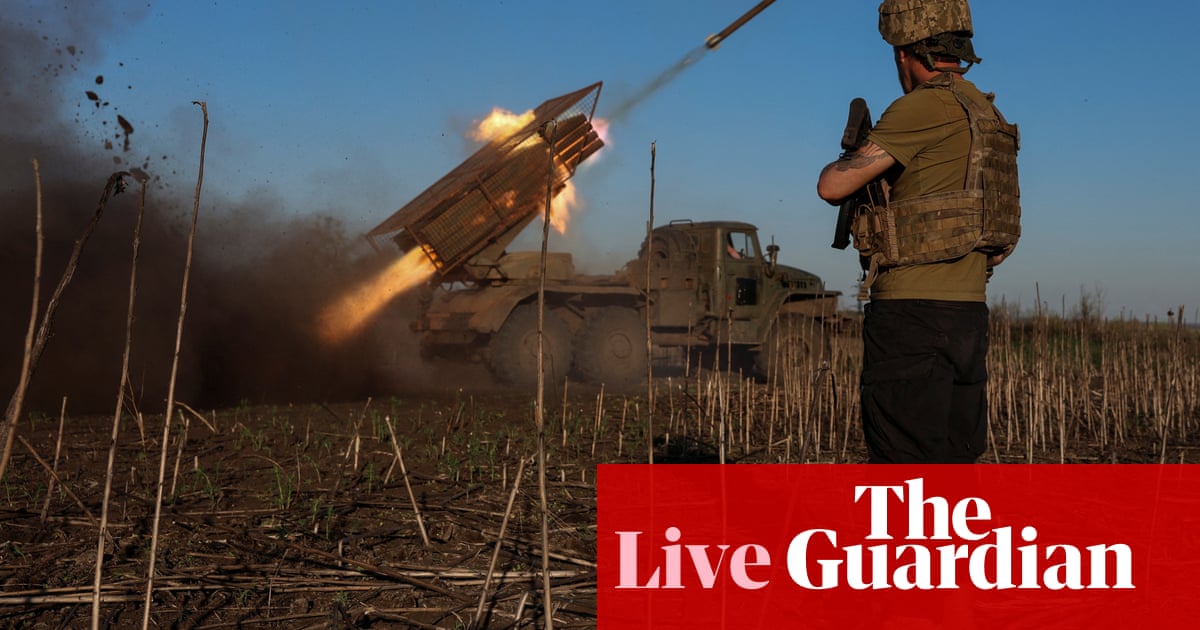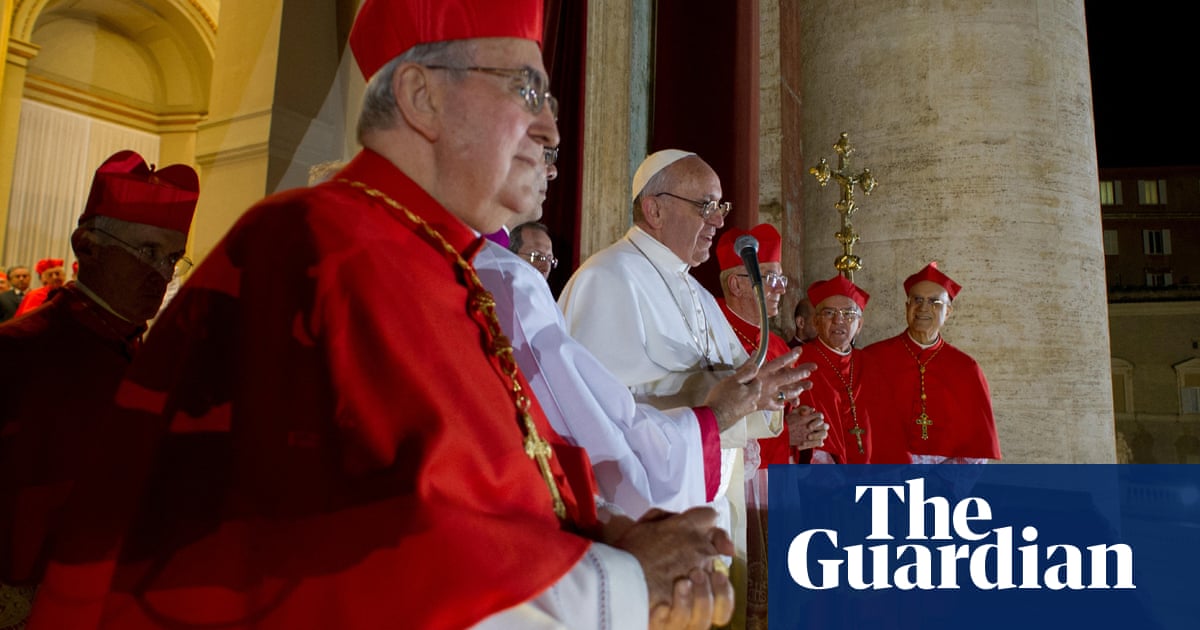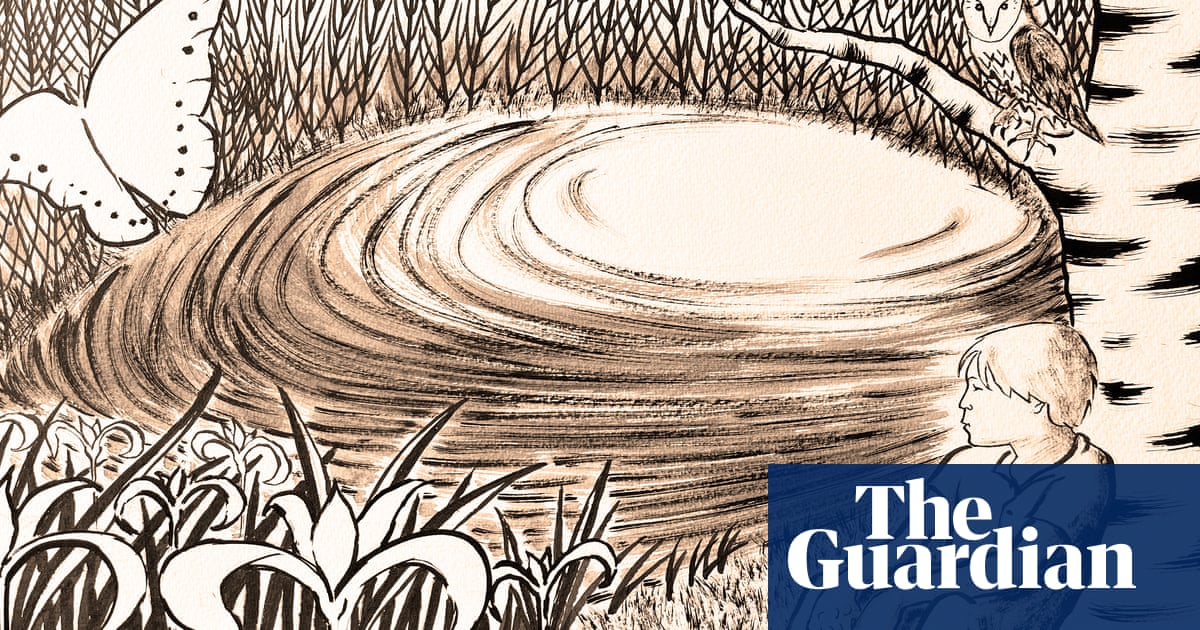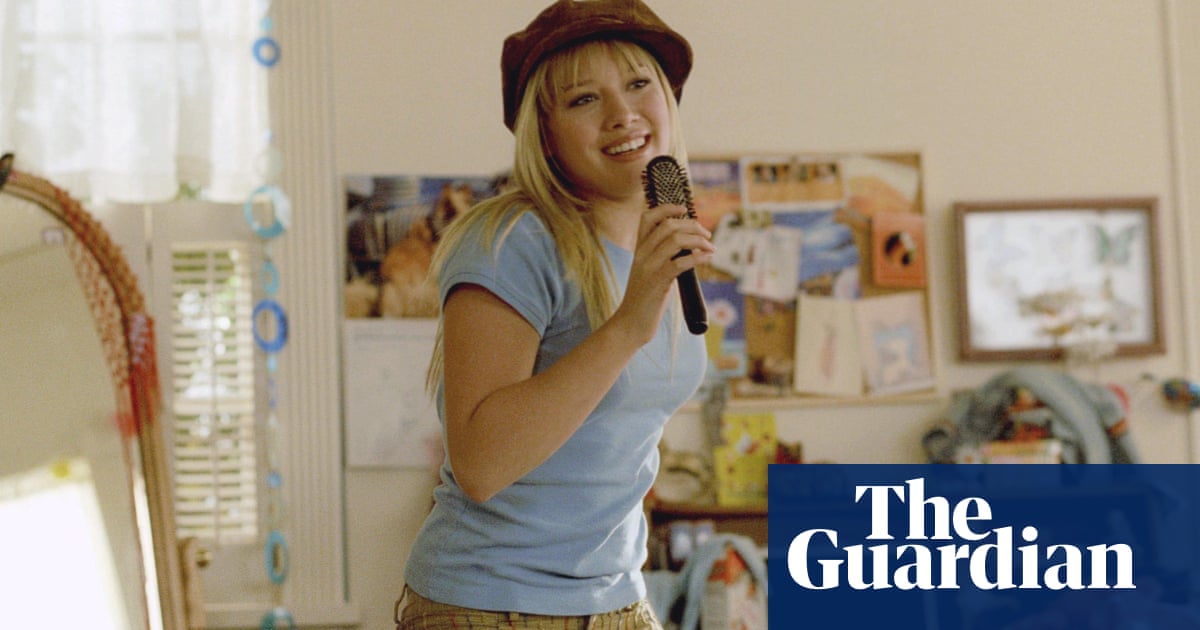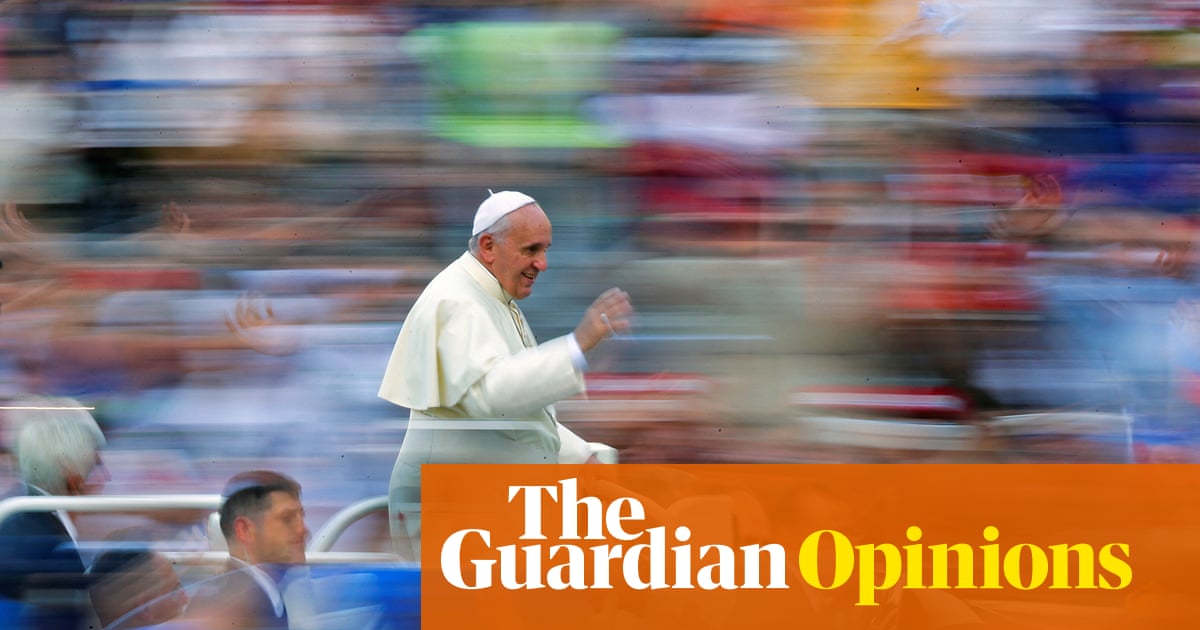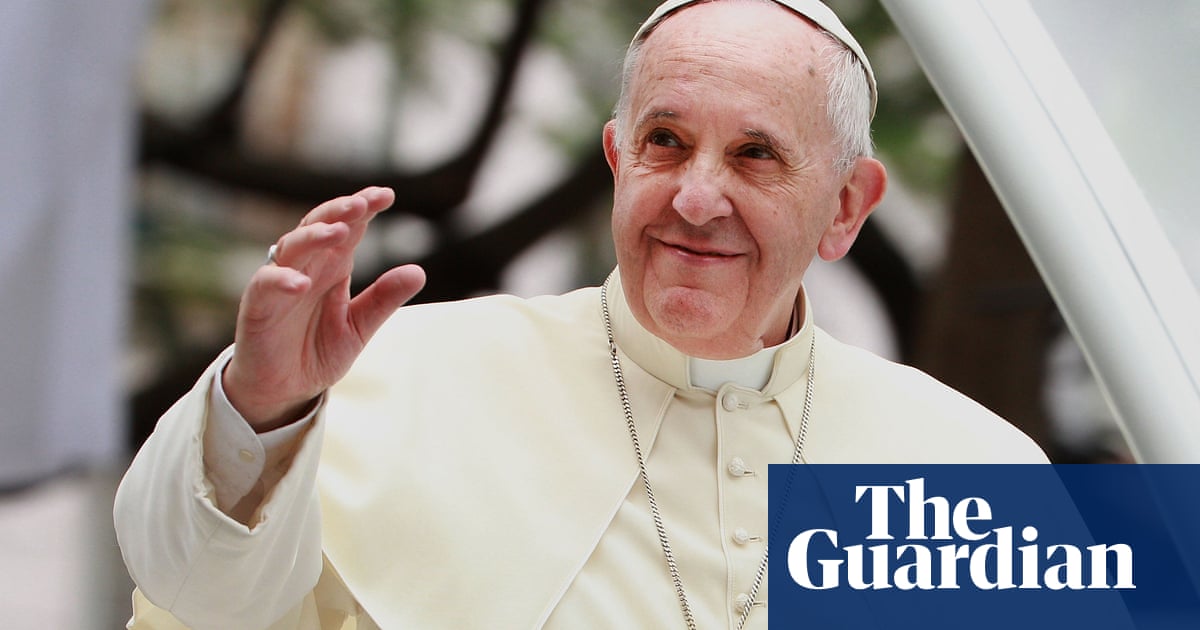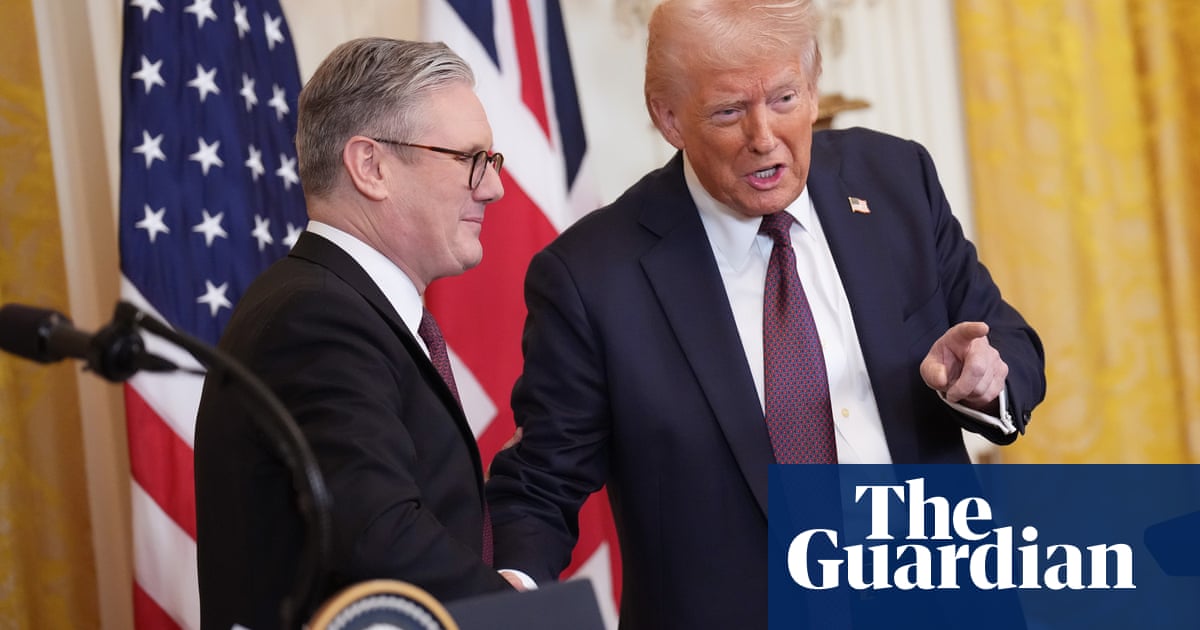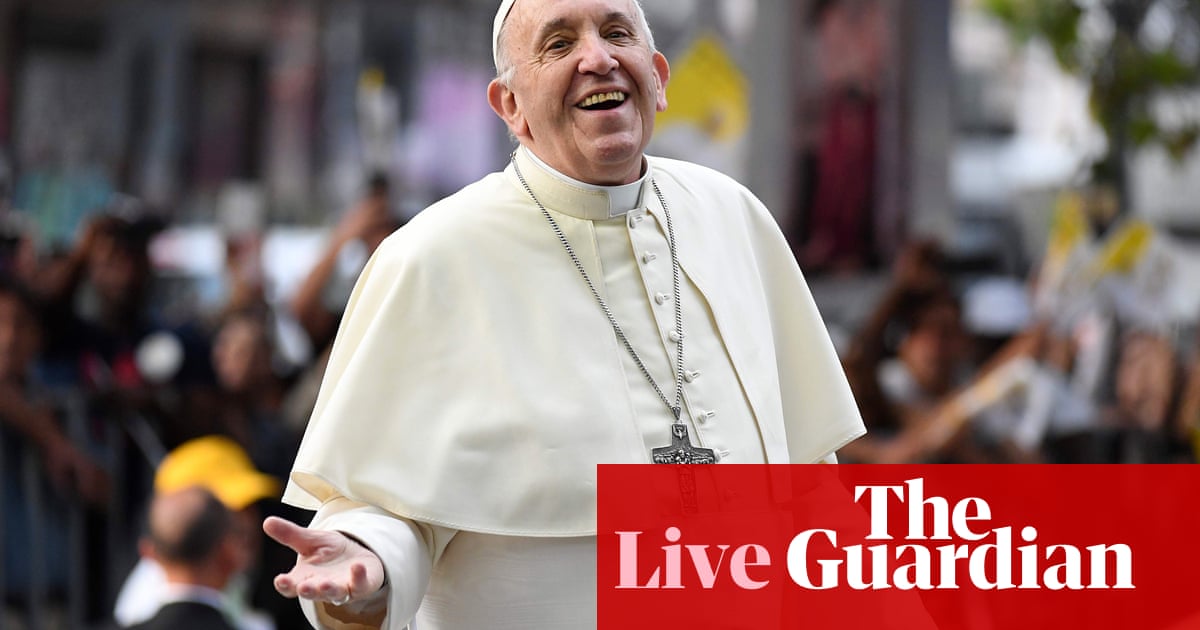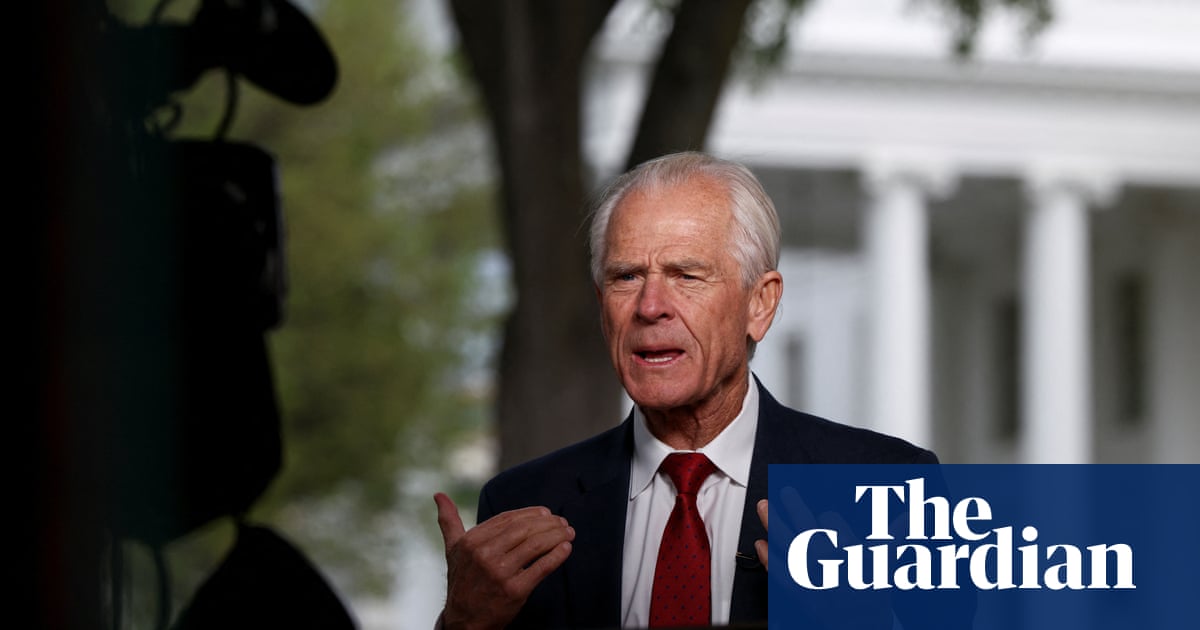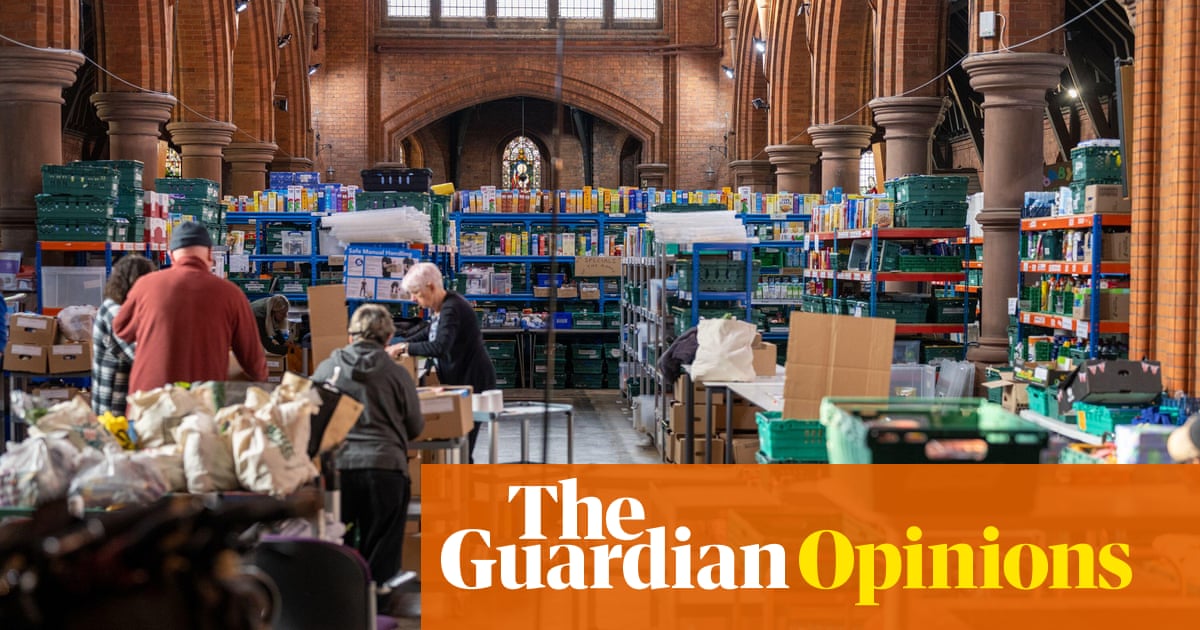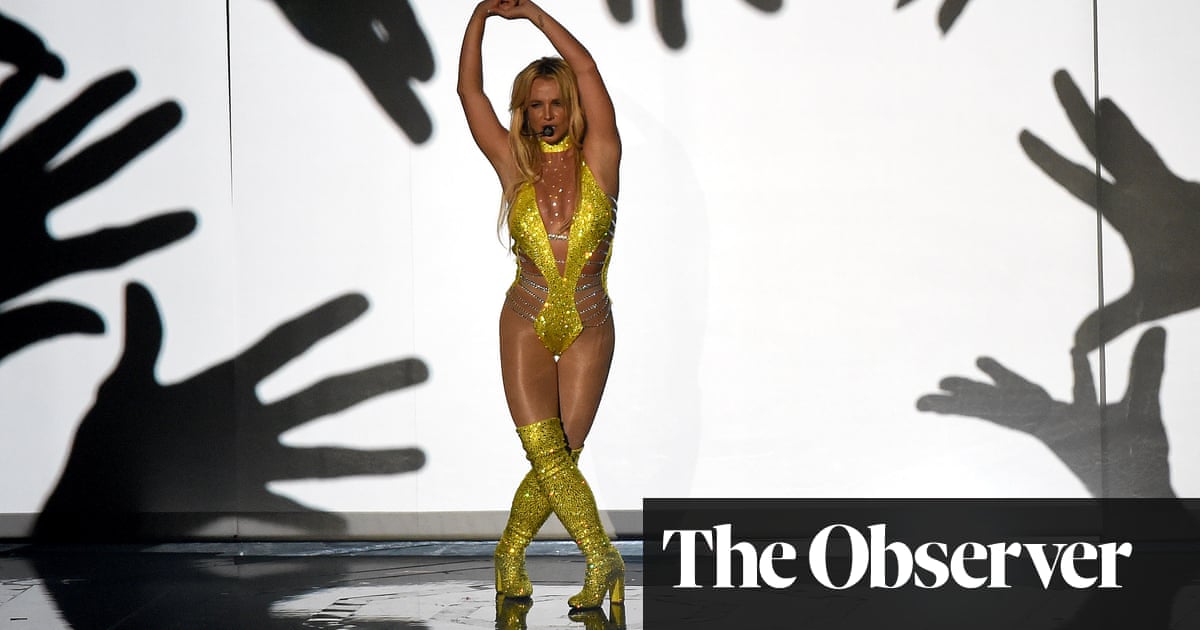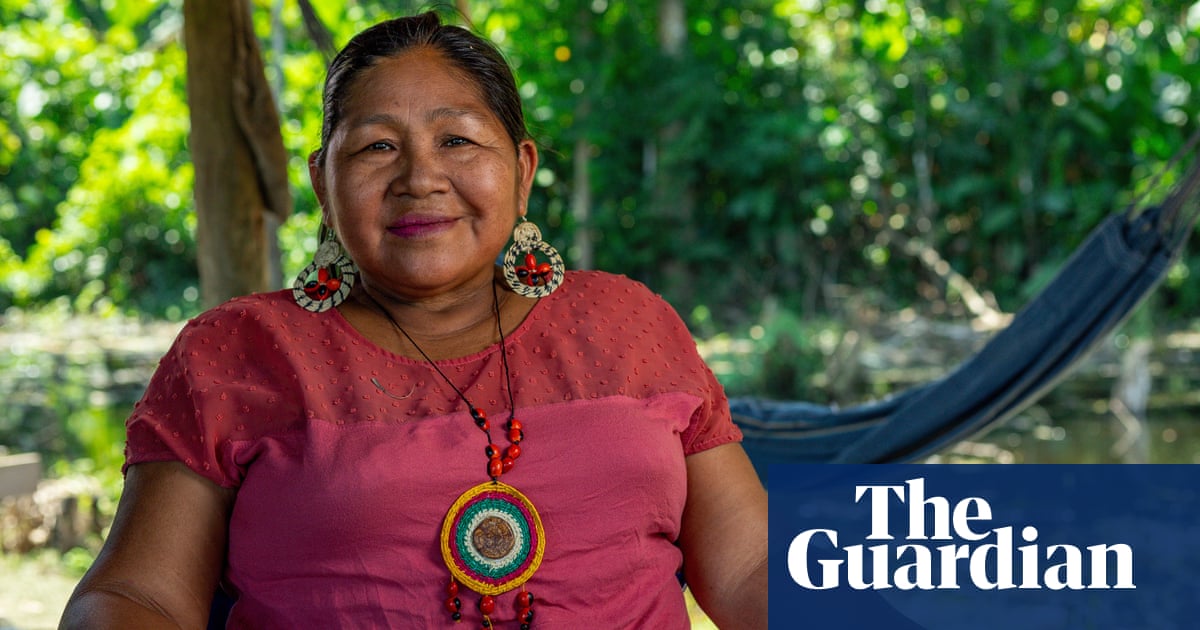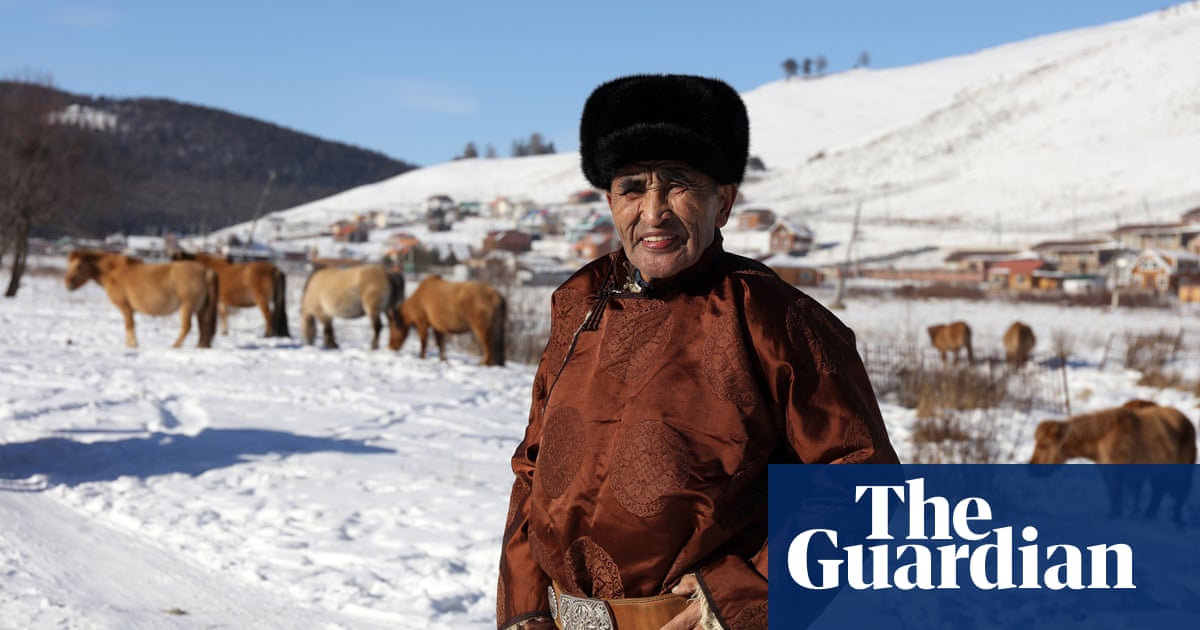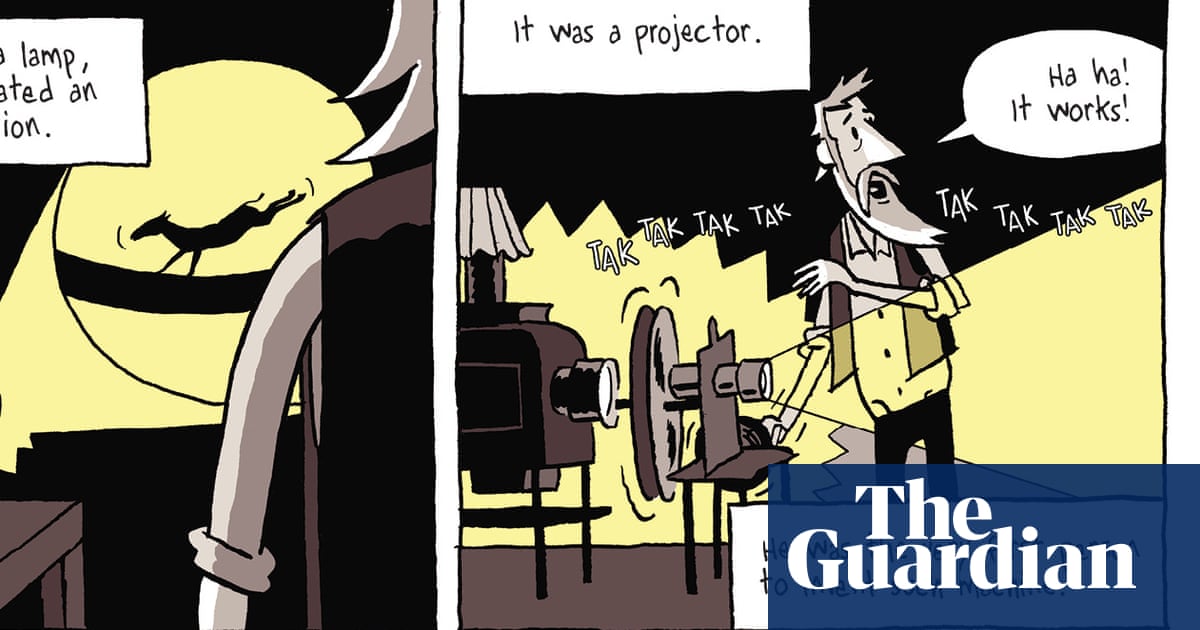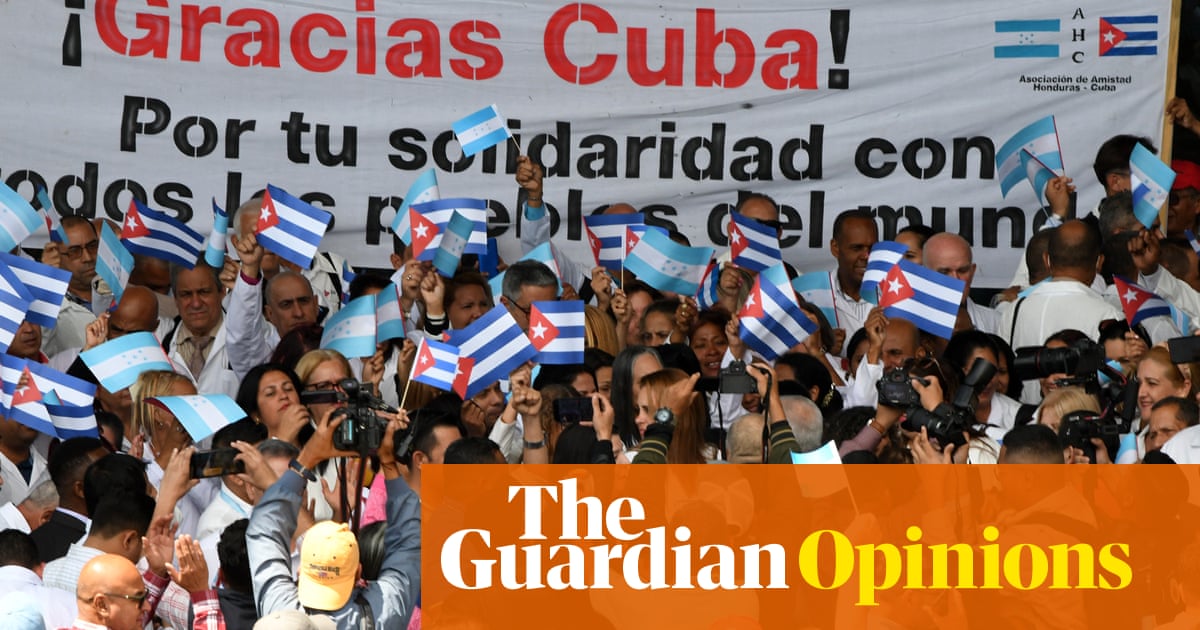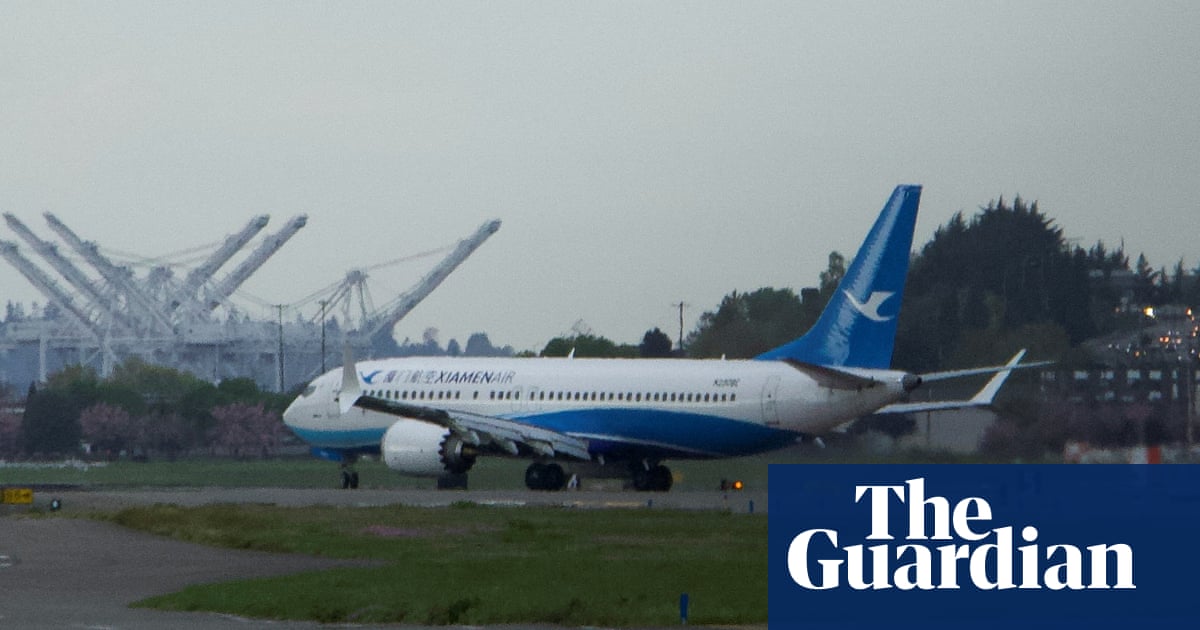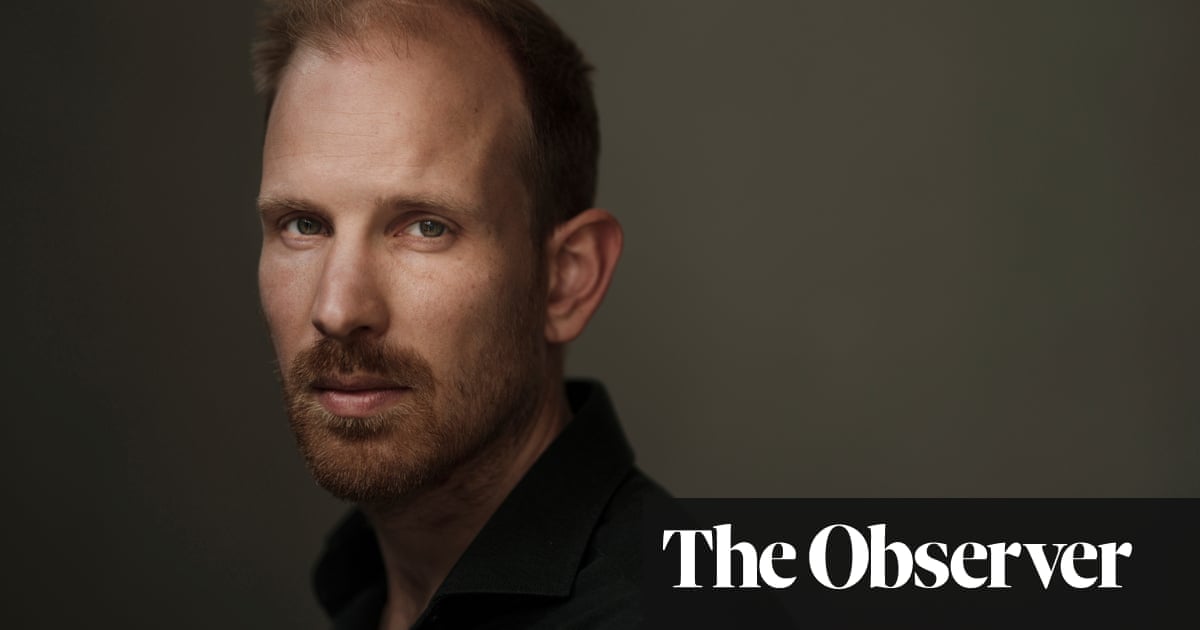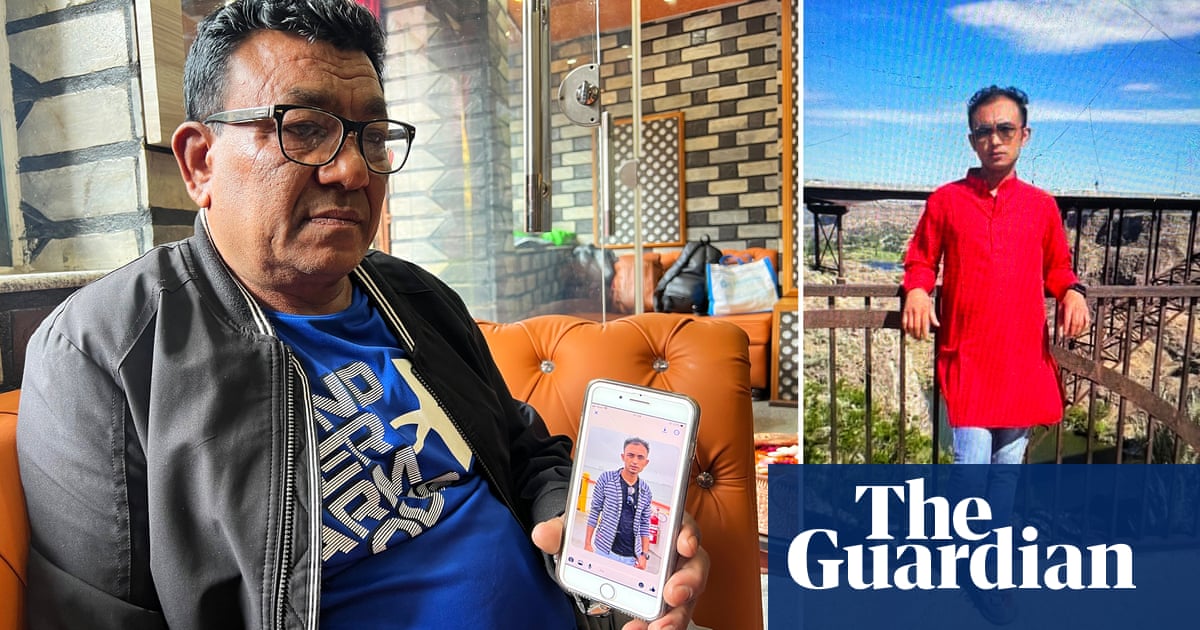Pope Francis, the pontiff revered by millions of Catholics around the world whose popular appeal reached far beyond his global congregation, has died at the age of 88.
Cardinal Kevin Farrell, the Vatican camerlengo, said: “At 7.35 this morning, the bishop of Rome, Francis, returned to the home of the Father. His entire life was dedicated to the service of the Lord and of his church.″
Francis, who suffered from chronic lung disease and had part of one lung removed as a young man, was admitted to Gemelli hospital on 14 February for a respiratory crisis that developed into double pneumonia. He spent 38 days there, the longest hospitalisation of his 12-year papacy.
Loved by many Catholics for his humility, Francis simplified rites for papal funerals last year and previously said he had already planned his tomb in the basilica Santa Maria Maggiore in the Esquilino neighbourhood in Rome, where he went to pray before and after trips overseas. Popes are usually buried with much fanfare in the grottoes beneath St Peter’s Basilica in Vatican City.

Francis, who was born Jorge Mario Bergoglio in Buenos Aires, Argentina, in 1936, was elected pope in March 2013. He immediately signalled his style of papacy by taking the bus, rather than papal car, to his hotel, where he paid his bill before moving into the Vatican guesthouse, eschewing the opulent papal apartments. At his first media appearance, he expressed his wish for a “poor church and a church for the poor”.
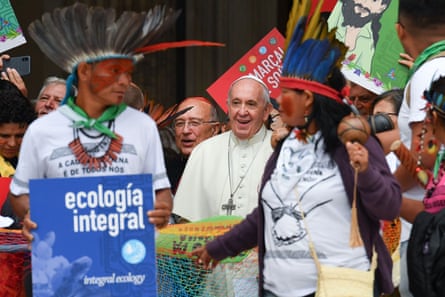
He focused papal attention on poverty and inequality, calling unfettered capitalism the “dung of the devil”. Two years into his papacy, he issued an 180-page encyclical on the environment, demanding the world’s richest nations pay their “grave social debt” to the poor. Climate change represented “one of the principal challenges facing humanity in our day”, the pope declared.
He called for compassion for and generosity towards refugees, saying they should not be treated as “pawns on the chessboard of humanity”. After visiting the Greek island of Lesbos, he offered 12 Syrians refuge at the Vatican. Prisoners and the victims of modern day slavery and human trafficking were also highlighted in his frequent appeals for mercy and social action. During his recent period in hospital, he kept up his telephone calls to the Holy Family church in Gaza, a nightly routine since 9 October 2023.
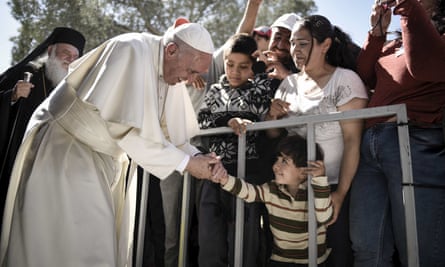
One of the biggest issues Francis had to contend with was that of clerical sexual abuse and the church’s cover-up of crimes committed by priests and bishops. In the first few years of his papacy, as wave after wave of scandals engulfed the church, Francis was accused by survivors and others of failing to understand the scale of the crisis and the urgent need to proactively root out abuse and its cover-up.
In 2019, Francis summoned bishops from around the world to Rome to discuss the crisis and later issued an edict requiring priests and nuns to report sexual abuse and its cover-up to the church authorities, and guaranteeing protection for whistleblowers. It was a significant move towards the church taking responsibility for the scandals, and went much further than his predecessors.
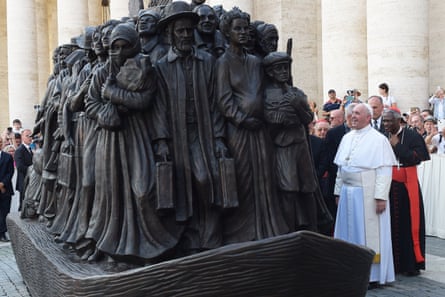
Also during his tenure as the head of the Catholic church, Francis was obliged to respond to repeated acts of terrorism and persecution. He was at pains to stress that violence had no part to play in true practice of religion, and that people should not conflate acts of terrorism with Islam. “I think it is not right to identity Islam with violence,” he said after the murder of a Catholic priest in France in 2016. “I think that in nearly all religions there is always a small fundamentalist group,” he said, adding “We [Catholics] have them.”
Francis spoke with compassion on issues of sexuality (famously responding “Who am I to judge?” to a question about gay priests), the family and the role of women in society – while adhering to traditional Catholic doctrine on marriage, contraception and abortion. Although many on the left strove to claim Francis as one of their own, he could not easily be defined as liberal or conservative.
On his many trips abroad, Francis was greeted like a rock star, with hundreds of thousands – sometimes millions – waiting for hours for a glimpse of the diminutive, white-robed figure in his open-sided popemobile. His appeal was particularly strong among young people, whom he frequently urged to reject materialism and over-dependence on technology. “Happiness … is not an app that you can download on your phones,” Francis – who had nearly 19 million followers of his English Twitter account– told Catholic youth in April 2016.
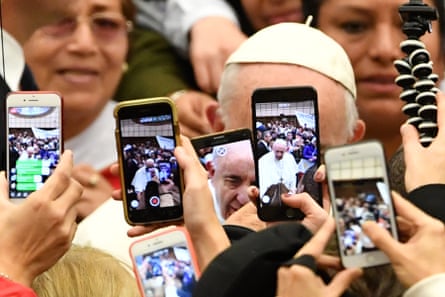
Although part of one lung was removed after a teenage infection, the pope was in remarkably good health until recent years. But he still kept up a busy schedule and last September embarked on his longest trip, to south-east Asia.
In July 2021, he had surgery to remove 13in of his large intestine, spending 10 days in hospital after the operation. Francis underwent further intestinal surgery in June 2023, almost three months after being hospitalised at Rome’s Gemelli hospital with bronchitis.
The deliberations and final choice of the Catholic church’s cardinal-electors in the coming days and weeks will determine whether Francis’s efforts to reform its institutions and to shift its emphasis towards the poor will be a durable legacy.
The College of Cardinals is expected to convene for the conclave within 15-20 days of Francis’s death.

 1 hour ago
3
1 hour ago
3
